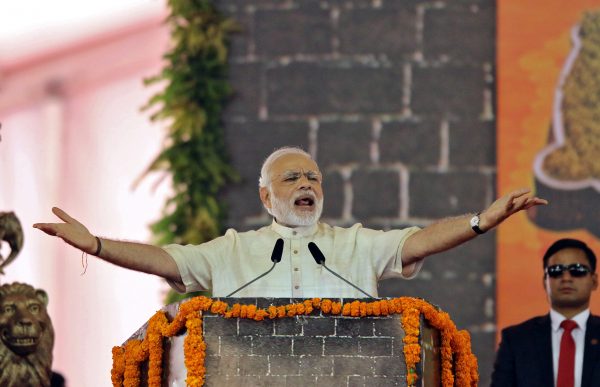For Modi, India as a vishwa guru is an India that draws deeply from its extraordinary cultural, religious and philosophical inheritance to tackle pressing transnational challenges. These include issues like climate change, sustainable development, terrorism and helping to rewrite the now fraying rules of the international order. It implies an India that introduces people to the wisdom found in aspects of Hindu thought, and brings about lasting social and political change.
The notion that India should be more than just a regular power — pursuing its interests and securing sufficient wealth, heft and influence — is not new. India’s first prime minister, Jawaharlal Nehru, argued that despite its economic and military weakness, the country could and should aspire to be a ‘normative power’. In other words, India should be a state that sets the norms and rules of international relations in line with its values. To that end, Nehru campaigned for cooperative multilateralism, an end to colonialism and racism, and both conventional and nuclear disarmament, while grounding his arguments in Buddhist, Hindu and Gandhian ideas.
In contrast, Modi’s notion of a vishwa guru India draws inspiration from 19th century Hindu nationalist and monk Swami Vivekananda, founder of the Ramakrishna Math and Mission.
Modi has long claimed an affinity with Vivekananda. Some of Modi’s biographies assert that when Modi left his family to wander India at the age of 18, he went first to Vivekananda’s religious foundation at Belur Math, Kolkata to try to become a monk. He was turned away and supposedly told to commit himself to bettering Indian society, in line with Vivekananda’s teachings on karma yoga — the ‘yoga of action’ — and the importance of living an active, rather than contemplative, life. In recent years, Modi has sought to reinforce Vivekananda’s legacy, including tweeting a quote from his adopted guru every day throughout 2012 — the 110th anniversary of his death.
Vivekananda thought appeals to Modi because it provides a Hindu nationalist vision of a resurgent India distinct from the secular nationalist version of Nehru and his successors. But that vision is idiosyncratic. In his ‘Nationalistic and Religious Lectures’, Vivekananda argued that what he called the ‘Indian race’ had a distinct ‘mission’ for the world, which was not to seek ‘political greatness or military power’. Instead, it was to let ‘all the spiritual energy of the race…pour forth…on the world’.
He wanted Hindus to recognise that theirs was the only truly tolerant religion, because it was underpinned by the concept of vasudhaiva kutumbakam — meaning the world is a family — and the notion that all religions are merely different paths to God.
These ideas clearly appeal to Modi. They surface regularly in his speeches at major international meetings, including addresses to the UN General Assembly and at various inter-faith dialogues like the World Culture Festival that Modi attended in March 2016. They also inform his rhetoric about major global issues, including climate change and terrorism. Modi’s book on the Gujarat government’s approach to climate change, Convenient Action, argues that the Vedas (ancient Hindu texts) provide the necessary wisdom to tackle the problem. His speech to the 2016 World Sufi Forum suggested that Hindu tolerance can overcome religious conflict and misunderstanding as well as bring an end to terrorism.
It is unlikely that making India a vishwa guru or normative power will be easy. Few of Modi’s appeals to Vedic or Vivekanandan concepts have been translated into concrete policy proposals, aside from the call to establish a World Yoga Day, which was approved by the UN General Assembly in late 2014. There are institutional weaknesses too: India lacks the comprehensive public and cultural diplomacy infrastructure of the United States, the United Kingdom or even China with its controversial Confucius Institutes. Without such infrastructure, India will struggle to educate others in the philosophies and religious concepts Modi believes the world should embrace.
Above all, Modi faces a problem that Nehru also struggled to overcome: the gap between rhetorical commitments and practical realities at home, particularly between laudable ideas like religious tolerance and the everyday challenges posed to religious freedom in India by social discrimination and communal violence.
Ian Hall is Acting Director of the Griffith Asia Institute and Professor at the School of Government and International Relations, Griffith University.

